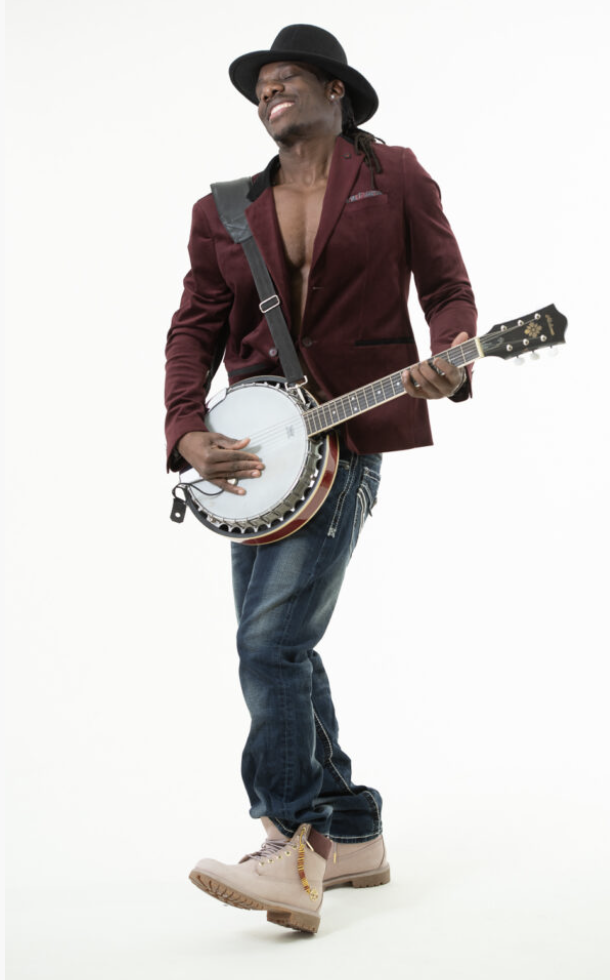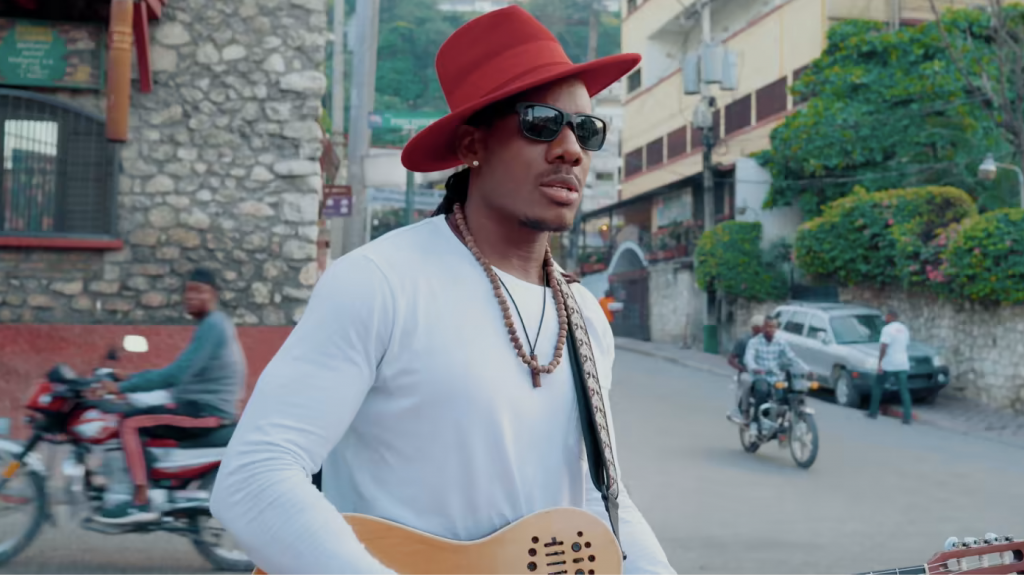Haitian musician Wesli Louissaint is an award-winning and world-renowned guitarist. His music is a blend of reggae and rap that taps into rhythms of Congo, Rada, Nago, Petro, Rara, and the West African language of Yoruba. While these influences share some of the same roots as traditional American blues, Wesli’s music is much more upbeat than the average blues song. One has to wonder if our beloved blues is way more inspired by the horrors of slavery than its much more upbeat African antecedents that permeate Wesli’s sound.
He, for instance, claims voodoo as an important ingredient in his music, but his description of voodoo is 180 degrees different from the voodoo my wife Shelly and I encountered in New Orleans more than three decades ago. We met Barbara George at Irma Thomas’ nightclub. In 1961 Barbara had recorded “I Know (You Don’t Love No More).” The R&B number went to number one, sold a million copies and was later covered by Fast Domino, Ike and Tina Turner, and Bonnie Raitt. When we entered the club, Barbara motioned for us to come sit with her at her table.
The crowd in Irma’s club was divided into two groups. Half the audience was white and sat closest to the stage. The other half was black. Barbara was African-American, but she motioned us to come and sit at her table as if we were old friends. She invited us to her home the next day and showed us her gold record acknowledging her million seller. We took her to lunch and wanted to go into a voodoo store nearby. She literally forbade us from entering and warned of how dangerous voodoo is. She was quite simply terrified that her new friends would somehow be hurt by simply entering that store.
Wesli’s voodoo is very different. It was brought to Haiti from Africa hundreds of years ago. “The voodoo is very simple to understand. You give life to anything that’s surrounding you. That’s voodoo. There are people doing other things they call voodoo that can scare people, but my voodoo is love. It’s there to help people to be a better human, to help people to become better on this earth, to respect nature, to respect the environment and give life to everything that is surrounding us.

“I think voodoo was demonized by the colonizers who didn’t want us (in Haiti) to practice our own culture at that time. They wanted us to be Christian, Catholic or something like that. There was a bad influence. There is black magic and white magic. The voodoo I’m talking about is positivity. The song that I am singing is about positivity and respecting others. In our culture where the tribes were coming from, we do it for all aspects and are happy about what we’re doing in society.”
Wesli had grown up in a very poor family of seven children, but in an environment that was more positive than say that of B.B. King who was raised on a Mississippi plantation, orphaned by the death of his mother and abandoned by his dad, and escaped (my words) to Chicago.
“My life was really hard when I was a child,” Wesli says. “I understood when mom explained to us when we didn’t have enough food, and (she and dad) would tell us in this life you’re going to have to share your food. Some days we ate corn meal, and there were days when we ate rice.” Meat was considered a luxury.
But Wesli had loving parents who made the struggles bearable if problematic for a young budding musician. His dad was a guitarist who busked on the beach and earned tips from tourists. “When I was 9, I told my dad, ‘I want to play guitar as well.’ He told me no at the time because the guitar brings food into the house. ‘If you break the guitar, there will be no food. Understand the importance of bringing food in the house.’”
To feed his growing love of music, Wesli built his own guitar. “I chose my creativity at the time. I went back to the beach. I told my dad I wanted to build a guitar, and I wanted some nylon strings. He gave me all kinds of nylons, and then I used them. I went on the street. I saved an oil can from the N60s (airplanes), and I took it. I looked at my dad’s guitar and made a hole through the boards of my little piece of wood. I put strings on it. That’s the way I built my first guitar, and when I came home I said, ‘Daddy, I have a new guitar. I want to tune it the way you tune your guitar.’ I sat down with my dad. We tuned the guitar, and that’s the way I started playing.”
So, the sound of his music is more upbeat than most blues. “In the Haitian way of doing music we are thinking the same sadness that we are living out from under colonization. We sing it with happiness, because inside of us we know we are free. The way it’s coming out is very sunny and happy because we have the same words, but we sing it to express and tell our stories in happiness. We turn over the happiness to a good mindset.
“Haiti is very contradictory. You can look at it from the outside, but from the inside we know who we are, and we know we are great people. We know we made history. We made history by telling the colonizers we don’t want that kind of oppression or treatment anymore, and it was like the first declaration of human rights. It’s a big thing. The thing is because we were that way, the modern governments don’t want us to exist because they know we have something unique in us that we want to inspire other nations to say no to oppression, to say no to colonization.
“We know who we are. That’s why happiness comes out of sadness, and we call it reunion. We are very happy to be who we are. We are happy to tell people our history. We are very happy to share with the world what is good with Haiti. It is our culture. We have a very beautiful society. We have beautiful music and beautiful culture, beautiful places like mountains and beautiful things that people can explore and can find their own soul and connect with us. We look at the future of economic and social freedom.”
Today Wesli lives in Montreal. His awards include a 2019 Juno (Canadian Grammy) for World Music Album of the Year for his album Rapadou Kreyol; a 2010 Babel Med Music Prize, the 2016 SOCAN Hagood Hardy Award, a 2019 award from the Académie Charles Cros, a 2020 Félix Award for Album of the Year in World Music, and a Canadian Folk Music Award (CFMA) for World Solo Artist of the Year.
On Sunday, January 14th, Wesli brings his six-piece band down from Montreal to play the legendary Caffe Lena in Saratoga Springs, New York.


